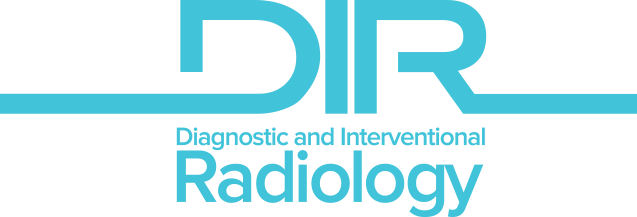Dear Editor,
I read with great interest the article by P Ganga et al.1, “Intra-atrial right coronary artery on dual-source CT: prevalence and characteristics,” published in Diagnostic and Interventional Radiology in the September–October 2021 issue. The authors described the prevalence and radiological features of the intra-atrial course of the right coronary artery (IA-RCA) in adults on coronary computed tomography angiography (CCTA).1 The IA-RCA is a rare anomaly of the right coronary artery course; recognition of IA-RCA is important before carrying out ablative procedures for arrhythmias, catheterization of the right heart chambers, and pacemaker implantation.1,2 I congratulate the authors for this interesting and instructive retrospective study. I suggest some points that need to be clarified in this article that could significantly contribute to the literature.
In the methods section, the authors stated that CCTA images were evaluated independently by two cardiothoracic radiologists.1 However, I could not find any statements in the text indicating the observers’ agreement or differences. In what situations were there differences in the assessment of IA-RCA between observers? How were these differences resolved by “discussion”? For example, which observer’s measurements were taken as a basis for quantitative evaluations, such as the length of the intra-atrial segment of RCA and the distance of the RCA from the atrial wall? In how many cases with IA-RCA did the RCA partially pass through the right atrium, and how many did it pass completely? What were the symptoms of patients with IA-RCA, and what were the CCTA indications? What were the coronary artery disease-reporting and data-system (CAD-RADS) scores of patients with IA-RCA? I suggest that the answers to these questions will make a significant contribution to the literature.



